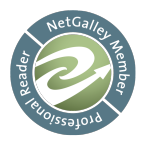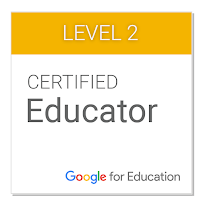I've been noticing something lately. It's particularly frustrating me.
I've been reading a lot of books on my Kindle lately. I'll admit, I use it for my "fluff" reading more than anything else. Things I want to read but for enjoyment only or don't want to keep a print copy of for later use. And, I'll admit, quite a bit of what I've read on it the last few months are books that were offered for free on Amazon. Sometimes this means the book is from a small press.
Formatting discrepancies get to me. A sudden carriage return in the middle of a sentence. New paragraphs that make little or no sense (because of their spacing, not because the story doesn't flow). Odd spacing in general. I've even noticed places where longer words have been hyphenated, presumably because in either the original print format or just in a smaller font size that I'm using on my Kindle those words needed to be hyphenated at the line break. And sometimes those hyphens are not used properly in the first place. (Yes, there are hyphen rules. See #s 5-8.)
Spelling really stands out to me as well--either out and out misspellings or multiple spellings of the same word/name/location used frequently in the story line. Sometimes it's almost forgivable, a simple typo. And one is always forgivable to me. Other times it is such a glaring error that it pulls me out of the story. Once I'm enthralled, it takes a lot to pull me out of the story, so if a misspelling does it, it must be unforgivable.
It makes me wonder if anyone looks at these things before they are approved or made available to the public. I realize that smaller presses (which often offer Kindle versions for free in order to boost publicity), may not have the editorial departments that a large publisher has. Random House, for instance.
I also come from a world that teaches us to proof read, proof read, and--oh yeah---proof read before handing over a "final" product. You don't hand in something that isn't your best work. And you certainly don't make it public unless it's done well. It doesn't speak well to me that a company selling the written word doesn't take time to check it. Then to reproduce a book in a digital format and not make sure it looks good in that format is, to me, just about unforgettable.
I've no doubt I'm not the only who notices this and is bothered. Even if I'm not paying anything for the Kindle format of many of the books I'm reading, that doesn't mean I should expect (or receive) lesser quality. This is a tacky metaphor, but I'm not at the factory outlet expecting seconds or that the seam on my Levi's may be a little off. I'm expecting a certain amount of quality, that doesn't look, well...not quality.
So, I'm going to make an offer...though I'm sure it'll be buried under a million other posts.
I'll proof your book. I'll work on the digital formatting. I won't charge you an arm and a leg. I won't even charge you by the hour, even though I could. Flat $50 and your publication will be better for it. Seriously.
Friday, November 19, 2010
Wednesday, November 10, 2010
Sites to See update
Knowledge is of two kinds. We know a subject ourselves, or we know where we can find information upon it.~~Samuel Johnson
Online YouTube Converter
http://convertyoutube.com/default.aspx
There is some REALLY good stuff on YouTube, that hasn’t made it to TeacherTube yet. But since it’s blocked, the only way we can use a YouTube video is if we convert the videos to a different file type. This online, FREE (though you do have to register) converter will do that for you.
100 Incredibly Useful YouTube Channels for Teachers
http://www.onlinecollegecourses.com/2010/10/20/100-incredibly-useful-youtube-channels-for-teachers/
Now it should be clear why I led with the Converter tool this time. In the list you’ll find channels from universities, nonprofits, museums, and plenty of other places. It’s a fount of amazing ways to add some media to your classroom lessons.
Nikon’s Small World Photomicrography Competition
http://www.nikonsmallworld.com/
The online gallery for a competition that challenges photographers using a light microscope. The images are beautiful, and can often highlight lessons in biology, chemistry, and art.
100 Helpful Photography Tutorials for Beginners and Professionals
http://photo.tutsplus.com/articles/round-ups/100-helpful-photography-tutorials-for-beginners-and-professionals/
With the Digital Camera Learning Community offered by the Technology Department starting next week, and the already amazing photographs coming out of Kim Caskey’s class this year, I thought this one might be interesting to many of you.
Database Profile
Student Research Center, powered by EBSCOhost
http://search.ebscohost.com/login.aspx?authtype=ip,cookie,uid&profile=SRC
Username & password: See Turney for this info.
This one of our “free” databases provided to all K-12 schools by the State. Like all good “free” things, if we don’t use it, we’ll lose it. Take some time to take a look. From the main page you can search for articles (magazines, newspapers, academic journals), books (including encyclopedias and biographies), radio and TV transcripts, country reports, state/province reports, primary source documents, or images (photos, maps, flags) on nearly every topic you can think of. Titles and information are updated almost daily, and in several cases I’ve read an article via the database before the magazine is delivered in my mail. All-around, it’s a wonderful resource for just about anything you’re interested in.
Online YouTube Converter
http://convertyoutube.com/default.aspx
There is some REALLY good stuff on YouTube, that hasn’t made it to TeacherTube yet. But since it’s blocked, the only way we can use a YouTube video is if we convert the videos to a different file type. This online, FREE (though you do have to register) converter will do that for you.
100 Incredibly Useful YouTube Channels for Teachers
http://www.onlinecollegecourses.com/2010/10/20/100-incredibly-useful-youtube-channels-for-teachers/
Now it should be clear why I led with the Converter tool this time. In the list you’ll find channels from universities, nonprofits, museums, and plenty of other places. It’s a fount of amazing ways to add some media to your classroom lessons.
Nikon’s Small World Photomicrography Competition
http://www.nikonsmallworld.com/
The online gallery for a competition that challenges photographers using a light microscope. The images are beautiful, and can often highlight lessons in biology, chemistry, and art.
100 Helpful Photography Tutorials for Beginners and Professionals
http://photo.tutsplus.com/articles/round-ups/100-helpful-photography-tutorials-for-beginners-and-professionals/
With the Digital Camera Learning Community offered by the Technology Department starting next week, and the already amazing photographs coming out of Kim Caskey’s class this year, I thought this one might be interesting to many of you.
Database Profile
Student Research Center, powered by EBSCOhost
http://search.ebscohost.com/login.aspx?authtype=ip,cookie,uid&profile=SRC
Username & password: See Turney for this info.
This one of our “free” databases provided to all K-12 schools by the State. Like all good “free” things, if we don’t use it, we’ll lose it. Take some time to take a look. From the main page you can search for articles (magazines, newspapers, academic journals), books (including encyclopedias and biographies), radio and TV transcripts, country reports, state/province reports, primary source documents, or images (photos, maps, flags) on nearly every topic you can think of. Titles and information are updated almost daily, and in several cases I’ve read an article via the database before the magazine is delivered in my mail. All-around, it’s a wonderful resource for just about anything you’re interested in.
Subscribe to:
Posts (Atom)
Creative Commons

This work is licensed by Jennifer Turney under a Creative Commons Attribution-Noncommercial-Share Alike 3.0 Unported License.






